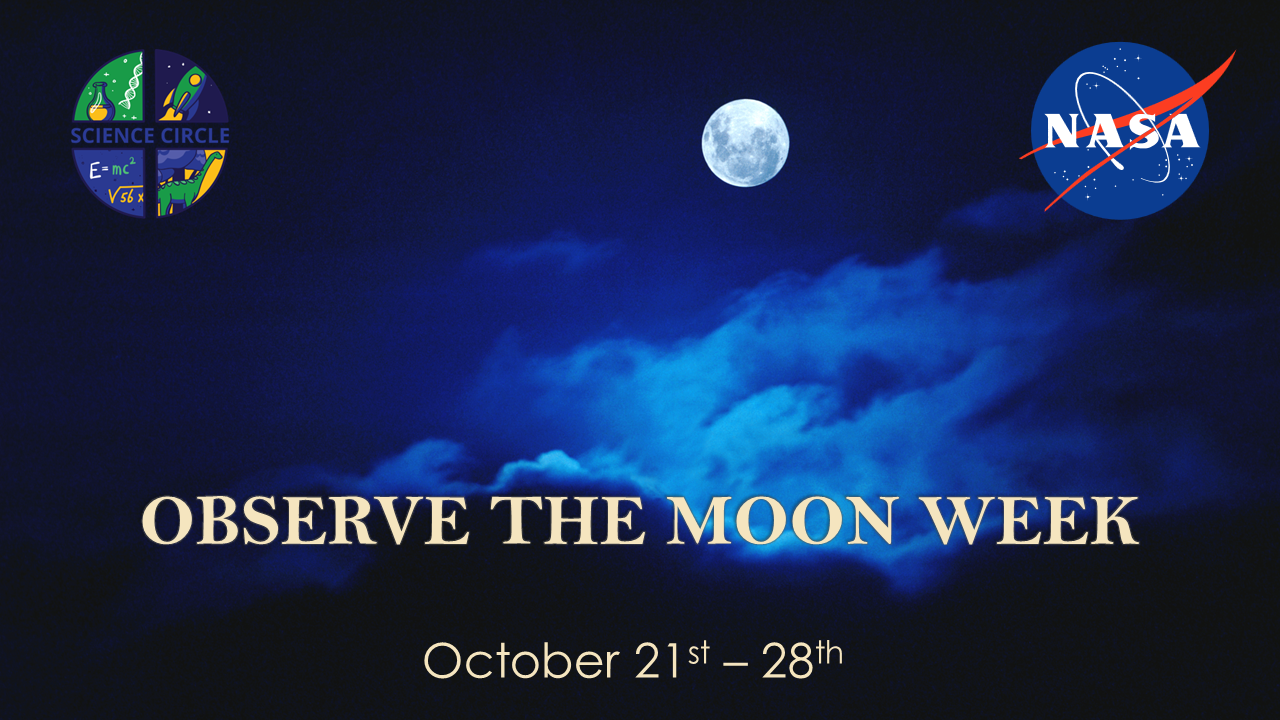
- This event has passed.
Observe the Moon Week
21/10/2023 @ 6:00 AM - 28/10/2023 @ 12:00 AM PDT
Free
OBSERVE THE MOON WEEK (21-28 October 2023)
Do you remember how The Science Circle ( https://www.sciencecircle.org/ ) celebrated International Observe the Moon Night ( https://moon.nasa.gov/observe-the-moon-night/ ) last year? We had presentations about the Moon and our relationship with it throughout history, live images from Kass’s telescope in Switzerland, a planetarium show, and a scheduled tour of the International Space Museum.
This year we decided to celebrate in two ways. One is a presentation for Science Circle EAST participants about this event (see https://www.sciencecircle.org/event/observe-the-moon-night/ for details). The other is a display in Second Life on Science Circle Island (see https://maps.secondlife.com/secondlife/The%20Science%20Circle/72/129/30 ) explaining the phenomena of solar and lunar eclipses, during which the Earth’s Moon plays a pivotal part.
>> This is a week-long event, open to visitors from Saturday, 21 October, through Saturday, 28 October 2023.
The eclipse display is on a platform on the water between the Amphitheater where SC WEST presentations are held at 10am SLT Saturday and the underwater site where SC EAST holds its events at 9pm SLT Saturdays. You can walk to it on bridges from either the Moon Base Group site or the peninsula where other exhibits on SC Island are located.
Educational posters in the display provide information about International Observe the Moon Night, The Science Circle non-profit organization, the Moon Base Group (our year-long celebration of our 15th Anniversary), and an explanation about eclipses, including the following:
—What is an eclipse? They are fairly common events in our solar system, if you consider all events, not only those seen from Earth.
—What is a lunar or solar eclipse? This is usually what we think of when we hear ‘eclipse’. How do they occur?
—Total, annular, and partial eclipses. What you see from a location on Earth depends on where you are in the Moon’s shadow. How does that work?
—Total vs. annular eclipses. The Moon’s orbit around the Earth is elliptical, which affects how big the Moon appears in the sky compared with the Sun. Why is that?
—Why are solar and lunar eclipses so rare? The tilt of the Moon’s orbit around Earth compared with Earth’s orbit around the Sun plays a major factor in creating eclipses seen from Earth. Why is that?
—Why is a total solar eclipse so rare? A total eclipse requires another condition on top of seeing an eclipse. What is that? Why are we fortunate on Earth to witness such as event?
—Will there always be total eclipses? The answer to that question may surprise you! Come visit the eclipse display to learn what it is!
